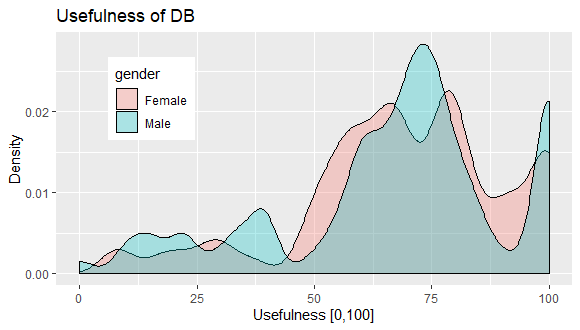My Experience with Discussion Boards
As the next academic year looms I am most worried about how I will be able to engage students actively in their learning and how I can achieve this in a way that enhances the student community in my course.
I am fortunate enough that in the last few years I have been managing to use online discussion boards to good effect such that today I think that I have a tool in my teaching toolbox which can help me in this endeavour. Let me explain why I am cautiously optimistic. I am teaching a very large first year course unit (Advanced Mathematics, compulsory for most students who study economics). 812 students were enrolled on that unit. Throughout the semester the discussion board generated 537 posts. Students, on average, saw 66 of these posts and made 3 contributions (i.e. either asking or responding to a question). This aggregated to more than 45,000 read posts and more than 2000 contributions by students.
Yes, this was a big course, but these numbers do make it clear that a discussion board can be host to a significant amount of engagement with the course’s material and importantly with the questions and answers of fellow students.
In my unit I use Piazza discussion boards which, at Manchester, are available as a tool from Blackboard. But they can also be used without VLE/LMS tie-in. Towards the end of this post I will briefly discuss platform issues, but the main part of this post is applicable to discussion boards on any platform.
It is not a Field of Dreams
Kevin Costner, in the 1989 movie Field of Dreams, famously heard a voice saying “if you build it he will come”. What may be true in the movies for baseball players and spectators is certainly not true for our students. If all you do as a course director is to “build” a discussion board you can rest assured, students will not come.
It requires effort to tie the discussion board into the study habits of your students. Here are a few things I have learned and a few others I will be trying in the coming year.
- Make it clear that any course content question is to be asked on the discussion board.
- If you get content queries by email early in the semester, just copy and paste them to the discussion board and respond there.
- Especially in early weeks tie the discussion board clearly into your sessions; either by picking up queries from the board or by directing students after sessions to reflection questions which you have posted on the discussion board. If you use Piazza you can even create simple quizzes in Piazza which you then use in live sessions.
- Do respond to student queries (this does not necessarily mean that you have to fully answer all questions). Students need to feel that you are present on the discussion board.
In the above course unit, sticking to these rules meant that I could keep my work email virtually free of student queries (but for any personal issues students may have had).
Who are you?
This is a very important question when it comes to clarifying what students should expect when they leave a query on the discussion board. Your role could range from answering questions as completely as possible and as quickly as possible on the one hand to merely monitoring and where necessary moderating student contributions.
I don’t think that there is a one size fits all answer to what you should do, but you should make it clear from the outset what students can expect from you, both in terms of what responses they should be expecting from you and in what timescale.
The role I adopted is perhaps best described by the following example:

Apart from the advice to show their working, you can also see that one of my jobs has been a little housekeeping and giving students hints on how to keep the discussion board organised. The student had posted this into the follow-up discussion of another query.
When students did post their workings I (or one of the teaching assistants) was willing to look at the work and respond to the student’s work as illustrated in the following post.

Sticking to this line is not always easy, especially as you get closer to the exam when queries start to become a little desperate. I also tried to not respond overly quickly as I was hoping that a judicious pause would perhaps lure some other students out of the woodwork. It is difficult to judge whether this was a success. For next year I am considering to give my students very clear expectations as to when in the week I am likely to respond on the discussion board (say Monday, Wednesday and Friday afternoon).
However, whatever persona you do take, it is important to show presence on the discussion board. If you rely on students to answer each other’s questions it is important that you do comment, clarify and approve of student contributions. It is unlikely that students would otherwise accept the discussion board as a legitimate part of your unit.
Wasn’t it a lot of work?
Yes, of course, but if we have a course with so many students we shouldn’t expect to manage student communication during the local weather report on the 6 o’clock news. I like to think that my ability to keep my email by and large clean from student queries not only saved me time but certainly also stopped my email inbox from showing silly numbers every morning.
Do active students get better grades?
Yes they do! I undertook some quantitative analysis which suggests a sizeable positive relation between discussion board activity and unit grade. However, it may of course be that the better and the more interested students engage more, but would have obtained better grades even without the discussion board. I attempted to control for these effects, but that is only partially possible, e.g. using previous year’s grades. A positive link remains, still sizeable, but it is impossible to attach a causal meaning to this.
Student Survey results
As part of my fellowship with the University of Manchester’s Institute for Teaching and Learning I was able to undertake a follow-up survey with students (of my own but also of colleagues’ course units).
The analysis of the 186 responses shows a number of interesting results. Amongst others that students overwhelmingly view discussion boards as contributing positively to their learning. These results are summarised in Figure 1 and Table 1. The question posed to students was: “On a scale from 0 to 100 how much do you think the discussion board helped you in your learning?” It is apparent that there are no substantial differences between the genders, but that students closer to graduation tend to appreciate the role discussion boards play in their learning more than students in their first year. This also corresponds to the finding (not shown here) that amongst Year 1 students there is a much bigger proportion of students who do not substantially use the discussion board.

Distribution of responses to the question “On a scale from 0 to 100 how much do you think the discussion board helped you in your learning?”. Separate distributions are shown for male and female responses.
| Year of Study | N | average | Q1 | median | Q3 |
| Year 1 | 73 | 60 | 49 | 63 | 76 |
| Year 2 | 91 | 72 | 64 | 73 | 84 |
| Year 3 | 19 | 75 | 62 | 76 | 97 |
Table 1. The table summarises the responses to the question “On a scale from 0 to 100 how much do you think the discussion board helped you in your learning?”
Course Convenor Role
We asked students what role they thought their course convenor was following. The majority perceived their convenors to either attempting to answer all questions her/himself or to merely comment on student attempts to answering any questions.
Interestingly the measure of usefulness did not differ substantially between students who perceived their course convenors to follow either of these roles. This is perhaps somewhat surprising given that the overwhelming comment by students is that course directors should give more, faster and more detailed answers to questions posed on the discussion board.
What does, however, clearly matter is that the course director’s role is well understood. The 16% of respondents who thought that the course director’s role was not clearly defined responded with an average of 57 to the above question, whereas students who thought that the role was well defined responded, on average, with a 70.
Student Role
We also asked respondents how they hoped their fellow students could contribute. Most students wished that their colleagues show more details of their working and thinking as they ask questions, that they avoid asking duplicate questions and that they use meaningful titles to the post. These latter two posts point to an important role course directors and TAs can have on a discussion board. Spending a little time on housekeeping and making the discussion boards as easy as possible to navigate can be very useful.
Respondents, who themselves judged that they did not at all answer to questions on the board, indicated that one reason for this was that they were not 100% certain about their answers. This makes it clear that, if teaching staff want to encourage more contributions, they ought to create an atmosphere in which students feel more comfortable to submit answers about which they are less than certain about.
When reading the very generous comments by students on a range of open text questions (“What would make you read more posts?”, “What would make you ask more questions?”, “What would make you answer more questions?” and “What would you, if you were a lecturer, do to encourage more engagement?”) one theme is apparent. Students want to feel that the discussion board is relevant to their learning. A number of suggestions could be summarised as “Lecturer, please tell me which of the many posts are important.” While we may not feel in a position, as lecturers, to “rank” posts on such a dimension, not least to avoid any impression that we place hints about the exam, it does point to the possibility to be more active on the discussion board on the question side. You should consider placing questions yourself and if you do so link them well from your main content delivery vehicles (VLE, recordings, tutorials etc.).
Discussion Board Platform
On Blackboard (the VLE or LMS of the University of Manchester) you can use a BB native discussion board or you can alternatively use Piazza discussion boards (either by merely using a hyperlink, or as a build-in tool in your VLE/LMS). Everything in the above discussion is universally valid for both platforms. I personally have, over the last years, made excellent experiences with Piazza (a short clip on how to set-up a class can be found here) although I have, previously, also been able to make Blackboard discussion boards an active place.
In particular I find it easier to keep Piazza discussion board well organised. Piazza discussion boards allow you to create labels/folders which students have to use to label their posts. It is also easily possible to link posts with each other and as students are posting new posts they see similar posts before they can actually post their own question (this is a new feature). The linking extends a little further still as it is really straightforward to link to a particular post from your lectures, tutorials or VLE. This greatly facilitates the linking of the discussion board to the remainder of your course.
A very useful feature is that, as a course director, or a TA, you can endorse questions and answers by students. This allows you to show a presence on the discussion board without having to respond yourself. You may only need to supplement answers provided by students themselves.
In addition to this you can use Piazza to run simple multiple-choice polls (similar to online clicker systems). The nice feature of this is that these polls will “survive” in the discussion board and allow for follow-up discussion.
In Summary
My experiences with discussion boards make me confident that I have a tool available which will allow me to offer students an opportunity to place their queries and have them responded to fairly quickly. In addition it will allow students to develop a learner community.
None of this will happen without active contributions and curation by the teaching staff. But I, for my part, am very much looking forward to that part of the upcoming academic year.
Student Feedback
In all my recent units in which I used discussion boards they feature very prominently in the positive responses on course unit surveys. The discussion board rarely makes an appearance in the “improvements” column. Interestingly, even though, on this large unit, formal feedback opportunities are pretty rare, the feedback score these units receive are actually very respectable (around 4.1 out of 5). In fact some students, in their comments, do explicitly link the discussion board to a positive feedback experience.
Benefits
Active students get better grades.
Further Resources
A 8 min video summarising some findings of the Student Survey.
A 20 min video on how to build a Piazza discussion board from within BB, including some basic usage tips (assumes that Piazza is tied in to Blackboard as it is in Manchester).
Cheat Sheets on the use of discussion boards: For Course Convenors/Directors, for Teaching Assistants.
Joseph Levine (2007) The online discussion board , New Directions for Adult & Continuing Education, Volume2007, Issue113, Pages 67-74. for a useful discussion of what makes discussion boards effective.
2 Comments
Submit a Comment

School: SoSS
Academic: Ralf Becker
Course: Multiple Economics
Themes: Student Interaction
Video Workshop
In this workshop, Ralf discusses why discussion boards work well, with useful resources for students, staff and teaching assistants.
Ref. 002



Ralf,
Very interesting article and many thanks for sharing.
Have you looked at taking this to the next level by analysing the student discourse to identify potential areas for improvement in the L&T materials or module delivery for the next iteration?
Kind regards
Steve
Hi Steve,
not necessarily by looking at the content of what students say on the discussion board (at least not systematically). But every year I try to use the feedback I get through various channels to see whether I can identify room for improvement.
Ralf